The global supply chain has become increasingly complex, with businesses facing a range of challenges such as demand variability, supplier disruptions, and inventory management. In this context, the use of artificial intelligence (AI) tools has emerged as a game-changer for supply chain management. AI tools can help companies optimize their supply chains, reduce costs, and enhance decision-making accuracy.
However, with so many AI tools available in the market, it can be challenging for businesses to determine which ones are the best fit for their supply chain needs. In this blog, we will explore some of the top AI tools for supply chain management. We will examine how these tools work, their key features and benefits, and provide insights on how companies can leverage them to enhance their supply chain performance. Whether you are a logistics manager, a supply chain analyst, or an operations executive, this blog is a must-read for anyone interested in maximizing their supply chain efficiency through AI technology.
IBM Watson Supply Chain
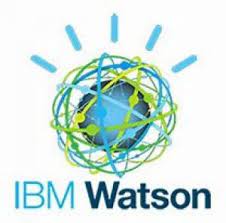
IBM Watson Supply Chain is a powerful tool that leverages the capabilities of Artificial Intelligence to optimize and streamline supply chain operations. With Watson, businesses can gain real-time visibility into their supply chains and identify potential disruptions, anticipate market changes, and improve the overall efficiency of their operations. Watson Supply Chain offers a range of features including supply chain analytics, risk management, and inventory optimization that help businesses gain a competitive edge in today's rapidly changing business landscape.
Pros
Cons
Overall Rank
SAP Ariba
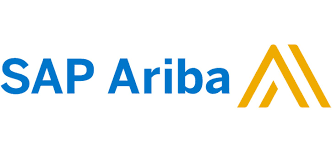
SAP Ariba is a cloud-based procurement platform that streamlines the procurement process, making it more efficient and cost-effective for businesses. It provides a user-friendly interface that allows companies to manage their entire procurement process, from sourcing to payment, in one place. The platform's ability to automate many of the manual procurement tasks, such as purchase order creation and invoice processing, saves time and reduces the risk of errors. Additionally, the platform offers analytics and reporting capabilities, which allow businesses to gain insight into their spending patterns and make more informed decisions about their procurement strategy. Overall, SAP Ariba is a powerful tool for companies looking to streamline their procurement processes and improve their bottom line.
Pros
Cons
Overall Rank
Oracle Supply Chain Management Cloud
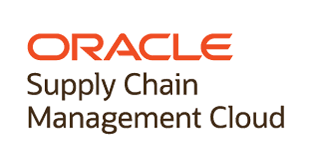
Oracle Supply Chain Management Cloud is an innovative and comprehensive solution designed to help businesses manage their supply chain operations more efficiently and effectively. It provides a wide range of features and functionalities to streamline processes such as procurement, inventory management, order fulfillment, and logistics. With its advanced analytics and real-time visibility, Oracle Supply Chain Management Cloud allows businesses to optimize their supply chain processes, reduce costs, improve customer satisfaction, and gain a competitive edge in the market.
Pros
Cons
Overall Rank
Blue Yonder (formerly JDA Software)
.png)
Blue Yonder, formerly known as JDA Software, is a leading provider of end-to-end supply chain and retail solutions. The company uses advanced AI and machine learning technologies to help businesses optimize their operations, increase efficiency, and improve customer satisfaction. Their solutions cover everything from demand forecasting and inventory management to warehouse optimization and transportation planning. Blue Yonder's platform is highly scalable and customizable, making it suitable for businesses of all sizes and industries. With over 30 years of experience, the company has a proven track record of helping its clients navigate complex supply chain challenges and achieve their goals.
Pros
Cons
Overall Rank
Logility
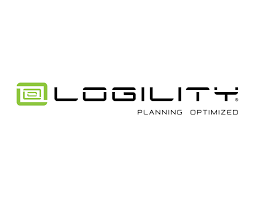
Logility is a supply chain management software solution that helps businesses plan, optimize, and execute their supply chain operations. It offers a range of tools and capabilities such as demand planning, inventory optimization, transportation planning, and more. With Logility, companies can gain greater visibility into their supply chain and make data-driven decisions to improve efficiency, reduce costs, and enhance customer satisfaction. Its cloud-based platform is easy to use, scalable, and flexible, making it a valuable asset for businesses of all sizes and industries.
Pros
Cons
Overall Rank
Kinaxis RapidResponse

Kinaxis RapidResponse is a cloud-based supply chain management software that enables businesses to plan, monitor, and respond to changes in demand and supply in real-time. With RapidResponse, users can create what-if scenarios and simulations, collaborate with stakeholders, and gain visibility into their entire supply chain network. The software uses AI and machine learning algorithms to optimize inventory levels, reduce lead times, and improve customer service levels. RapidResponse can integrate with other enterprise systems such as ERP and CRM to provide a seamless end-to-end solution. Its intuitive user interface and customizable dashboards make it easy for users to access the information they need and make data-driven decisions.
Pros
Cons
Overall Rank
Infor Nexus

Infor Nexus is a cloud-based network platform that enables end-to-end supply chain visibility and collaboration across trading partners. It provides real-time data analytics and predictive insights, empowering businesses to make informed decisions and improve operational efficiency. Infor Nexus supports various industries, including retail, manufacturing, logistics, and healthcare, among others. Its modular design allows for flexibility in choosing the specific functionalities needed, and it seamlessly integrates with existing systems to maximize ROI. Overall, Infor Nexus is an excellent solution for businesses looking to optimize their supply chain processes and gain a competitive advantage.
Pros
Cons
Overall Rank
Elemica

Elemica is a digital supply chain management platform that offers real-time visibility and control over a range of business operations. The platform connects businesses with their suppliers, customers, and logistics service providers, allowing them to automate and streamline their supply chain processes. With Elemica, businesses can monitor their orders, shipments, and inventory levels in real-time, and collaborate with their partners to resolve any issues that may arise. The platform also offers analytics and reporting tools that enable businesses to gain insights into their supply chain performance and identify areas for improvement. Overall, Elemica is a powerful tool that helps businesses optimize their supply chain operations and stay ahead of the competition.
Pros
Cons
Overall Rank
LLamasoft Supply Chain Guru

LLamasoft Supply Chain Guru is a powerful supply chain design software that allows businesses to optimize their operations by analyzing their current supply chain and testing various scenarios. The software provides an intuitive user interface and advanced analytics capabilities to help users make informed decisions and gain a competitive edge in their industry. With Supply Chain Guru, users can model their entire supply chain network, identify bottlenecks and inefficiencies, simulate different scenarios, and evaluate the impact of changes before implementing them. The software also offers a range of visualization tools, including heat maps, charts, and graphs, to help users better understand their data and communicate their findings to stakeholders. Overall, LLamasoft Supply Chain Guru is an excellent tool for businesses looking to optimize their supply chain operations and improve their bottom line.
Pros
Cons
Overall Rank
Anaplan
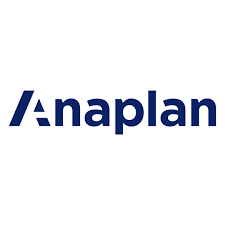
Anaplan is a cloud-based platform that enables organizations to streamline their planning and performance management processes. With its user-friendly interface and robust functionality, Anaplan empowers users to easily create and modify models, visualize data, and collaborate with team members in real-time. By leveraging Anaplan's powerful technology, businesses can gain greater visibility into their operations, make more informed decisions, and ultimately achieve better outcomes. Whether it's financial planning, sales forecasting, or supply chain optimization, Anaplan provides a flexible and scalable solution that can be customized to meet the specific needs of any organization.
Pros
Cons
Overall Rank
LeanDNA
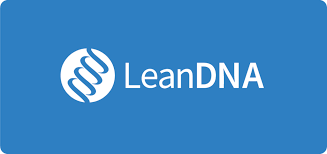
LeanDNA is a cloud-based analytics platform designed to help manufacturers optimize their supply chain operations and reduce waste. The software uses real-time data analysis to provide actionable insights, enabling manufacturers to make informed decisions about inventory management, supplier performance, and production planning. With LeanDNA, manufacturers can streamline their processes, improve supplier collaboration, and reduce lead times, ultimately resulting in increased profitability and customer satisfaction. Additionally, LeanDNA's user-friendly interface and customizable dashboards make it easy for users to access critical information and monitor key performance metrics.
Pros
Cons
Overall Rank
Syncron

Syncron is a global software company that provides cloud-based aftermarket service optimization solutions to manufacturers. Their software suite helps businesses maximize their after-sales service performance, increase revenue, and improve customer loyalty. Syncron's AI-powered solutions offer a range of functionalities, including inventory management, price optimization, and predictive analytics, enabling businesses to streamline their operations and reduce costs while ensuring customer satisfaction. With offices across the world, Syncron serves customers in a wide range of industries, including automotive, aerospace, and industrial equipment.
Pros
Cons
Overall Rank
Enterra Solutions

Enterra Solutions is a leading provider of cognitive computing technology that leverages artificial intelligence, machine learning, and big data analytics to help businesses make better decisions and improve their operations. Their flagship product, the Enterra Enterprise Cognitive System (EECS), is a unique platform that enables organizations to integrate structured and unstructured data from a variety of sources, and generate actionable insights that can drive growth and competitive advantage. EECS is used by a range of industries, including healthcare, financial services, energy, and agriculture, and has been praised for its ability to deliver fast and accurate results while reducing costs and increasing efficiency.
Pros
Cons
Overall Rank
RELEX Solutions
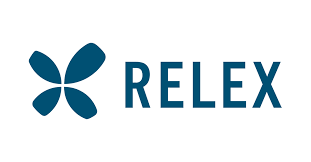
RELEX Solutions is a leading provider of unified retail planning solutions that helps retailers optimize their supply chain and inventory management processes. Its cloud-based software offers end-to-end visibility and control over inventory, demand forecasting, and replenishment, enabling retailers to streamline operations, reduce waste, and increase profitability. RELEX Solutions also provides advanced analytics and machine learning capabilities that enable retailers to make data-driven decisions and adapt to changing market conditions in real-time. With a customer-centric approach and a team of experts in retail planning, RELEX Solutions has been recognized as a top-tier provider of supply chain solutions for retailers worldwide.
Pros
Cons
Overall Rank
ToolsGroup
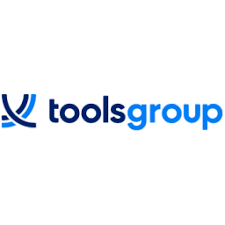
ToolsGroup is a leading provider of demand forecasting and inventory optimization software solutions. With more than 20 years of experience in the industry, the company has established itself as a trusted partner for businesses looking to improve their supply chain planning processes. ToolsGroup's solutions use advanced algorithms and machine learning technology to help organizations achieve optimal inventory levels, reduce costs, and improve customer service levels. The company's customer base spans across multiple industries, including retail, manufacturing, distribution, and healthcare.
Pros
Cons
Overall Rank
GEP SMART

GEP SMART is a cloud-based procurement software that helps businesses streamline their procurement process, from sourcing to payments. It offers a range of features such as supplier management, contract management, purchase order management, and invoice management, all in one platform. GEP SMART's user-friendly interface and customizable workflows allow users to easily manage procurement tasks and automate repetitive processes, saving time and increasing efficiency. Its advanced analytics and reporting tools provide real-time insights and help businesses make data-driven decisions. GEP SMART is a comprehensive solution that can be tailored to the specific needs of a business, making it an ideal choice for organizations looking to optimize their procurement process.
Pros
Cons
Overall Rank
DHL Resilience360
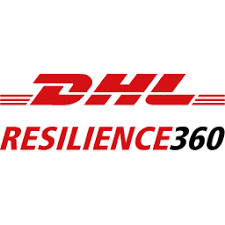
DHL Resilience360 is a cloud-based platform that offers businesses real-time supply chain visibility and risk management solutions. It provides data-driven insights to help companies manage their operations more efficiently and proactively mitigate potential disruptions. The platform combines risk intelligence with supply chain data to provide a comprehensive view of a company's supply chain risks and vulnerabilities. It also offers advanced analytics and predictive modeling capabilities to help businesses anticipate and prepare for potential disruptions. DHL Resilience360 is a powerful tool for businesses operating in complex and volatile markets, as it allows them to quickly identify and respond to potential risks, ensuring business continuity and customer satisfaction.
Pros
Cons
Overall Rank
Antuit.ai
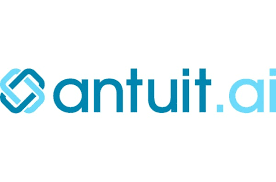
Antuit.ai is a leading provider of advanced analytics and artificial intelligence solutions to businesses across various industries. The company offers an end-to-end suite of services that includes data management, data science, machine learning, and predictive analytics. With its team of seasoned experts and state-of-the-art technology, Antuit.ai is capable of delivering valuable insights and recommendations to its clients, enabling them to make data-driven decisions and achieve their business objectives. From demand forecasting and inventory optimization to customer segmentation and marketing effectiveness, Antuit.ai's solutions are designed to tackle complex business problems and drive growth and profitability.
Pros
Cons
Overall Rank
ClearMetal
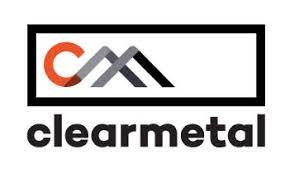
ClearMetal is a technology company that uses artificial intelligence and machine learning to provide predictive logistics solutions for global supply chain management. By using real-time data and predictive analytics, ClearMetal enables companies to optimize their supply chain operations, reduce costs, and improve customer service. ClearMetal's platform provides end-to-end visibility and optimization across the supply chain, allowing companies to better anticipate demand, manage inventory levels, and improve delivery times. The company's solutions are used by a wide range of industries, including retail, manufacturing, and transportation.
Pros
Cons
Overall Rank
Locus Robotics
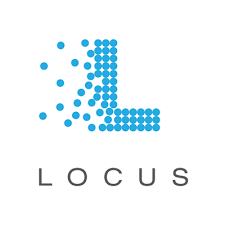
Locus Robotics is a leading provider of autonomous mobile robots for warehouses and distribution centers. Their innovative technology helps to streamline the fulfillment process by enabling robots to work alongside human workers, increasing productivity and reducing errors. The robots can navigate complex environments with ease and can carry out tasks such as picking and packing items with high accuracy. Locus Robotics has been adopted by major retailers and e-commerce companies around the world, such as DHL, Geodis, and Boots UK, to name a few. With a mission to empower human efficiency and streamline warehouse operations, Locus Robotics is poised to continue leading the way in the robotics industry.
Pros
Cons
Overall Rank
In conclusion, the use of AI tools in supply chain management has become increasingly important in recent years. These tools offer a range of benefits, including improved efficiency, cost savings, and increased accuracy in decision-making. By leveraging AI, companies can optimize their supply chains, reduce waste, and improve customer satisfaction. Among the best AI tools for supply chain management are demand forecasting algorithms, inventory optimization software, and predictive analytics tools. These technologies enable companies to gain valuable insights into their supply chains, such as identifying trends and patterns in customer demand and predicting potential disruptions before they occur. Furthermore, the continued development of AI technologies promises to revolutionize the field of supply chain management. The use of machine learning algorithms, natural language processing, and robotic process automation will enable companies to automate and streamline various processes in their supply chains, ultimately leading to more efficient and cost-effective operations. In summary, incorporating AI tools into supply chain management has become an essential strategy for businesses looking to stay competitive and enhance their operations. By utilizing these technologies, companies can achieve significant improvements in their supply chain performance, leading to increased profitability, customer satisfaction, and a sustainable competitive advantage.
